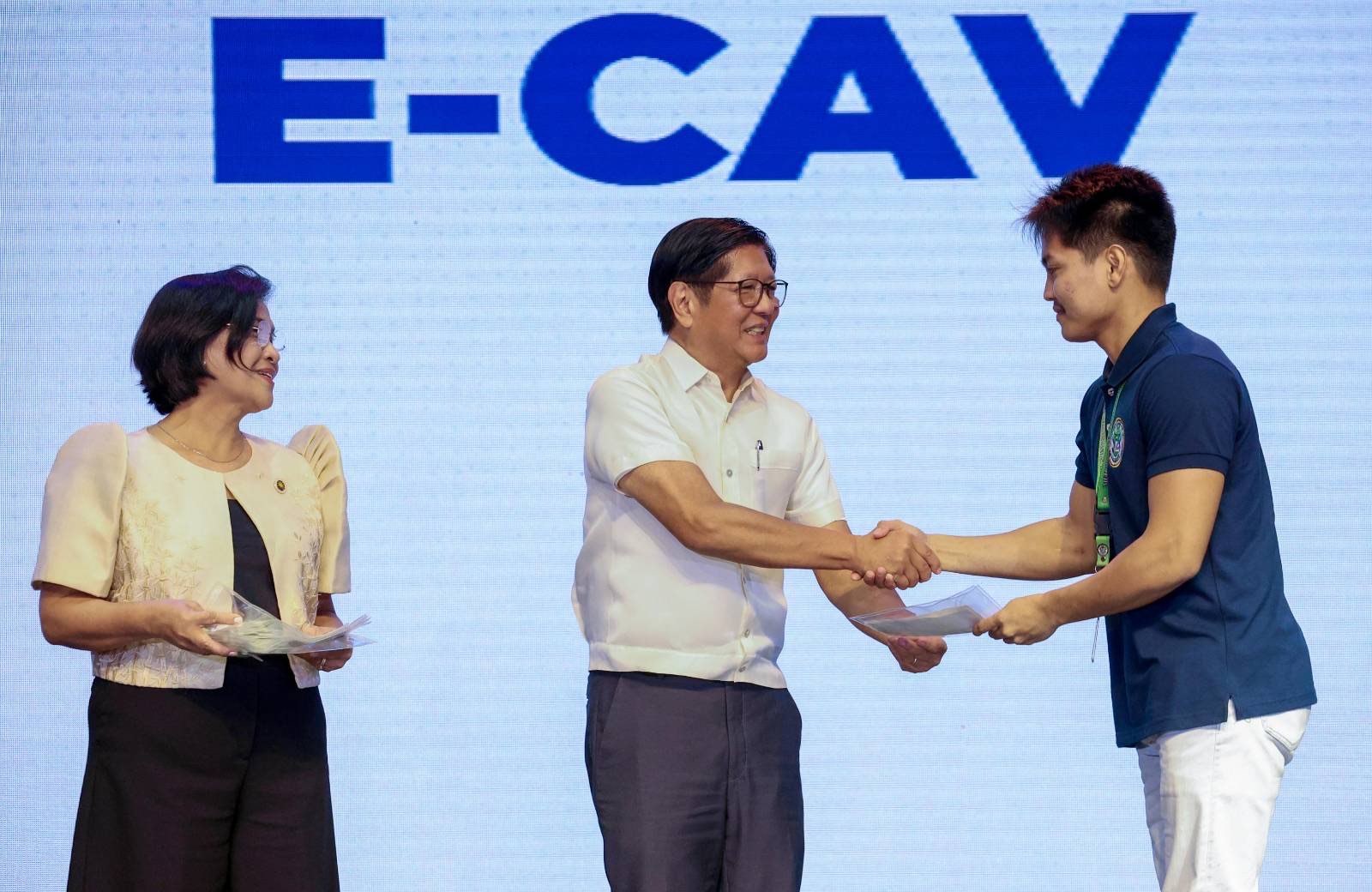
By Brian Campued
“Ang edukasyon po ay hindi po pribilehiyo; ito po ay karapatan ng bawat mamamayang Pilipino.”
President Ferdinand R. Marcos Jr. on Friday called on implementing agencies, educational institutions, as well as lawmakers to help strengthen and expand the Unified Student Financial Assistance System for Tertiary Education (UniFAST) to extend necessary support to more college students.
Marcos made the directive during the awarding of the Commission on Higher Education’s (CHED) UniFAST scholarship grants in Pasay City, underscoring the importance of education in creating a competitive workforce.
“Walang kabataan din ang dapat maapektuhan ang pag-aaral dahil sa kahirapan. Kaya naman, gumagawa tayo ng mga hakbang upang maipagpatuloy ng estudyante ang kanilang pag-aaral,” he said in a speech, reiterating his aspiration to produce a college graduate in every Filipino family.
“Our assistance to our students proves that the returns are immeasurable when the government invests in people. When we strengthen education, we also strengthen our workforce and we forge a better future for our economy, for our country,” he added.
The UniFAST is a government initiative aimed at providing full or partial tuition fee assistance to qualified students from state- and CHED-recognized local universities and colleges nationwide.
The President emphasized that the guidelines on how to avail assistance through the UniFAST and related information must be clear and disseminated properly to parents and students before the start of the academic year.
“So, I now call on all state and local universities and colleges, private higher education institutions, local government, and our partners: Continue to work with us. I also call on Congress to help us strengthen UniFAST so that we can implement it fully as intended in the letter of that law,” he continued.
The government also offers a P20,000 annual tertiary education subsidy for students in need, which may be used to cover tuition, transportation, books, food, and other school-related expenses.
Under the same program, college students with disability will also receive an additional P5,000 grant, while students taking degree programs with licensure examinations are eligible for reimbursement up to P8,000.
Platform for easier access to academic records unveiled
During the same event, the Chief Executive likewise launched the electronic Certification, Authentication, and Verification (eCAV) System, a digital platform designed to streamline students’ access to academic records, such as diplomas, transcripts of records (TOR), and other documents usually needed for job applications.
This eCAV System is also integrated through the eGovPH Super App, eliminating the need for students to physically visit their schools and simplifying the lengthy procedures to secure their academic credentials.
“Kasabay ng pagpapatibay sa ating mga programang pang-edukasyon, pinapaigting din natin ang gamit ng teknolohiya,” Marcos said.
“Hindi na kailangang bumiyahe nang malayo pa. Sa pamamagitan ng eGovPH Super App, maaari nang makakuha [ang] estudyante o bagong graduate ng academic credential para sa kanilang job application,” he added.
The eCAV System also includes online payments if any, real-time tracking and updates on the status of requests, and a downloadable copy of the documents accessible through an applicant’s account or email.
-jpv
